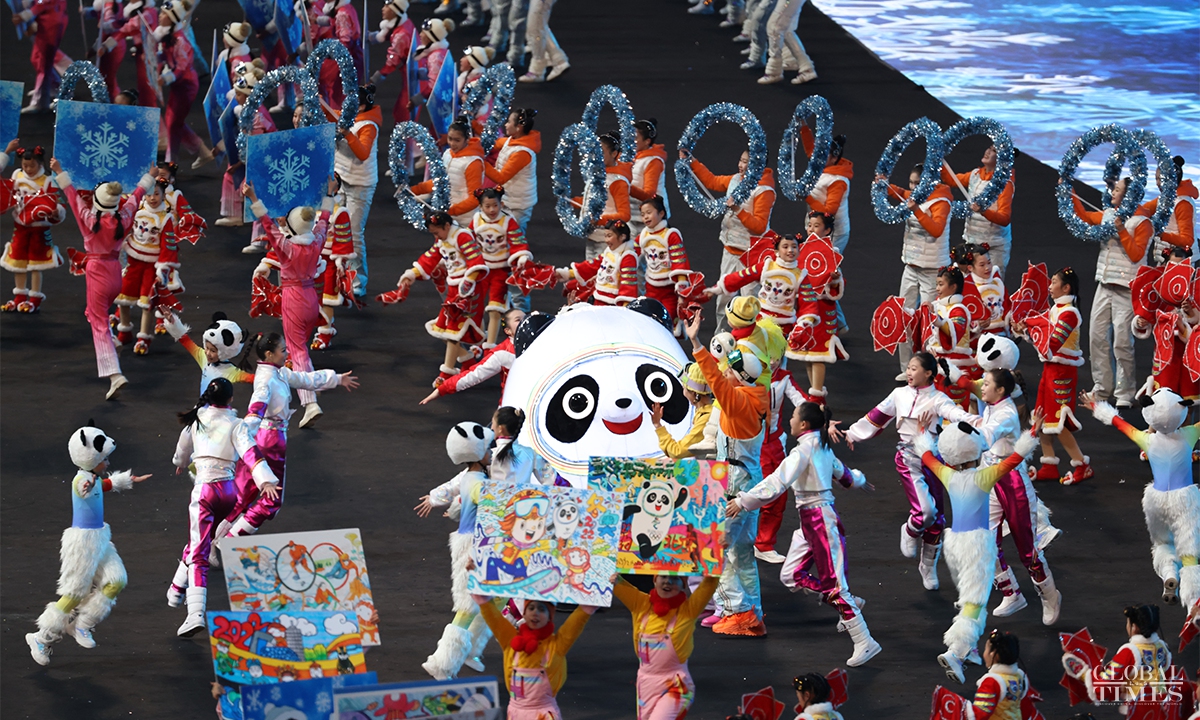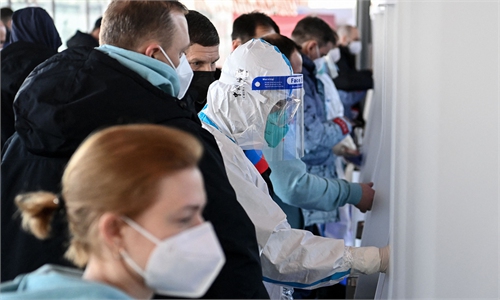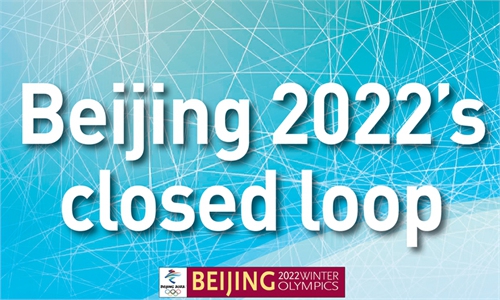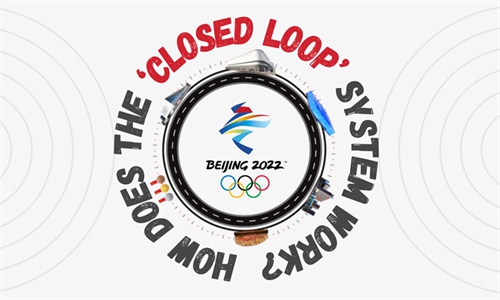Japanese reporter hails Beijing 2022’s COVID-19 prevention as ‘bubble in the true sense’

Beijing 2022 opening ceremony Photo:Li Hao/GT
With the successful opening of the Beijing 2022 Winter Olympic Games on Friday, the well-thought-out epidemic prevention measures have impressed many foreign journalists, who hailed the system a "protective bubble" in the true sense.
"I was so impressed by the strictness of Beijing's epidemic prevention measures," a Kyodo News reporter, who wrote an article in the news outlet hailing Beijing's strict but effective "bubble," said in an interview with the Global Times on condition of anonymity on Thursday.
"In my experience, I was required to undergo a nucleic acid test to enter China, and when I arrived at the Beijing airport, epidemic prevention personnel again gave me a test, as well as a test on my luggage," the reporters said.
He then took a special bus from the airport to the hotel and found that the driver's seat on the bus was also enclosed with plastic sheeting.
The Japanese journalist had also covered the Tokyo Olympics last year, and when comparing the differences in anti-epidemic measures between the Tokyo Olympics and the Beijing Winter Games, he said that only one can truly count as closed-loop, and that the Tokyo games cannot compare.
For example, Japan basically did not test luggage for the presence of coronavirus, and while he had previously noticed China's measures before, it was only after experiencing it that he got a first-hand impression of how strict the preventive rules are.
What's more, it is very difficult to break the anti-epidemic rules in Beijing, the reporter said. In Tokyo, the entrances and exits of hotels were unguarded, and people can move rather freely to nearby convenience stores and other places. Volunteers in Japan were also allowed to travel between the sports venues and their homes.
As a result, the number of infections in Japan continued to rise during the Tokyo Olympic Games. In the Beijing Winter Games, participants, volunteers, media and other related personnel all entered the closed loop, creating a true sense of "bubble" of epidemic prevention.
"The quarantine measures in Beijing are stricter than that of Tokyo Olympics," the Japanese reporter said, noting that Japan took it for granted that "everyone will follow the rules," but China has developed a stricter closed-loop system based on the consideration of how to prevent people from breaking the rules.
The reporter also believed that the Beijing Winter Olympics may have learned some lessons from the Tokyo Olympics.
What impressed the reporter most is that as the Beijing Olympics coincides with the Chinese New Year, volunteers and related personnel had to give up the opportunity to see their family but stick to their positions, making people feel that everyone is sparing no effort for the success of the Games.
China's well-thought-out efforts to stop the spread of the COVID-19 at the Beijing 2022 Winter Olympic Games have received praises from many foreign journalists, who said that the efforts have made them reassured.
Another reporter from Japan, who entered the closed-loop on January 27, told the Global Times that he was impressed by the strict anti-epidemic system for the Games. "In Japan, I've started preparations from downloading 'My 2022' app, reporting my daily physical conditions, obtaining vaccination certificate, taking the PCR test, obtaining green code and applying for customs declaration, etc."
"After entering the closed loop, I feel that it is a well-thought-out system," the journalist said. "While for the last few days, Japan has seen the largest number of daily infections on record, Beijing's system on epidemic control makes me feel reassured," he said.
Japan's Jiji News Agency said its reporters felt as if they were entering a "COVID-19 prevention world" that is stricter than Japan's when they saw workers in white protective suits at Beijing Capital International Airport. The atmosphere was a little intense as health workers wore masks, but they were friendly. The report said China's attempts to find "invisible threats" anywhere reflected the country's strong will to "make the Olympics a success no matter what."
The article also mentioned that the "anti-epidemic bubble" in Tokyo was one with loopholes, as people coming from overseas were allowed to go out once finishing quarantine, while in Beijing the "bubble" is more like "an invisible wall."
"China has done a thorough job, and that should be appreciated. Since a positive test renders an athlete impossible to compete in any games, it is better to make sure that they are assured. They will feel uneasy if the venues are lax in COVID-19 prevention instead," a number of Japanese netizens commented.




